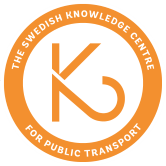Land Value Capture as a Model for Financing Public Transit Infrastructure in Sweden: Conditions and Implications
Land Value Capture as a Model for Financing Public Transit Infrastructure in Sweden: Conditions and Implications
The purpose of this research project is to generate new knowledge on the conditions and consequences of applying land value capture (LVC) as a model for part funding public transit infrastructure in Sweden. While international research indicates both potentials and risks with LVC, research on LVC in the Swedish context is currently very limited. This research project seeks to 1) analyze and discuss the political, institutional and legal conditions for applying land value capture in Sweden, 2) identify and investigate problems and challenges associated with the actual application of LVC in Sweden, and 3) based on the result of the theoretical discussions and the empirical inquiries discuss how LVC can affect the possibilities of generating sustainable urban development as well as efficient public transit systems. The research project is carried out in two parts. The first looks into the political, institutional and legal conditions for applying LVC to finance public transit infrastructure in Sweden in relation to international debates and research on the topic. The second part analyses two cases where LVC is applied: the establishment of a new tramline in Lund and the extension of Stockholm underground to Nacka. The new knowledge generated in this research project contributes to give both researchers and practitioners a better understanding of the conditions, possibilities and problems associated with the application of part funding public transit infrastructure through LVC.
